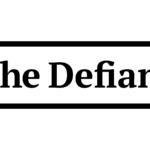Federal officials in Brazil have embarked on a groundbreaking initiative aimed at leveraging blockchain technology within the Unified Health System (SUS) to bolster digital health security and stimulate innovation. This effort is formalized through a new contract between the National Institute of Information Technology (ITI) and the Brazilian National Council of Scientific and Technological Development (CNPq).
The primary objective of this collaboration is to enhance strategic projects related to digital security, cryptography, and blockchain in the public health sector. The program is supported by the Ministry of Health, specifically through its Secretariat of Health Information and Digital Health (SEIDIGI). This partnership seeks to initiate a comprehensive digital transformation across Brazilian society, with expectations that its innovations will positively influence both public and private sectors by facilitating technology licensing and transfers.
One of the anticipated outcomes of this cooperation is the development of an integrated electronic signature and validation platform. This platform is designed to unify existing solutions within SEIDIGI, including tools like Meu SUS Digital and the National Health Data Network (RNDS), to enhance interoperability and the digital security of health data. Additionally, researchers will work on developing post-quantum cryptographic algorithms to strengthen security measures further.
Enylson Camolesi, president of ITI, highlighted the significance of this partnership with CNPq, emphasizing its potential to introduce scientific excellence into digital certification and government service solutions that will significantly improve the lives of Brazilians. Ricardo Galvão, the president of CNPq, echoed this sentiment, stressing the importance of collaboration in integrating artificial intelligence and blockchain into governmental systems for more effective service delivery to society.
As a leader in technology provision, ITI offers vital services such as the National Identification Card, electronic signatures, and validation services. In 2025, the institute issued over 8 million digital certificates and currently supports millions of electronic signatures each month on the Gov.br platform. Meanwhile, CNPq manages around 91,000 active research scholarships and oversees thousands of ongoing science and technology projects in Brazil.
This collaboration marks a significant step forward in public sector innovation, mirroring international trends where governments are increasingly exploring blockchain to enhance transparency, optimize operations, and build trust in digital government services. The research collaboration is poised to pave the way for expanded applications of blockchain and AI within government services, fostering more digital transformation initiatives that could yield positive benefits for the population and stimulate economic growth through technological commercialization.







